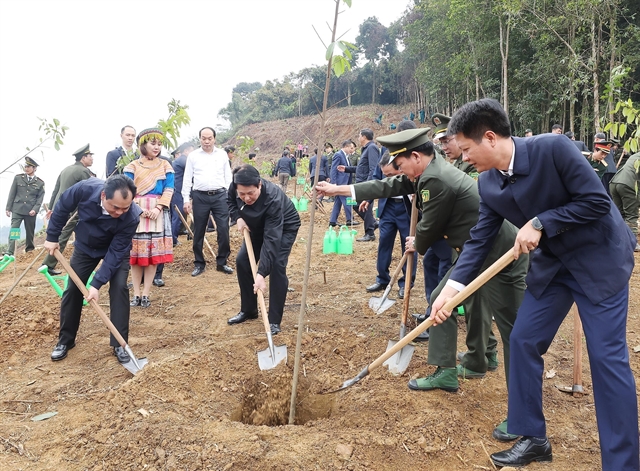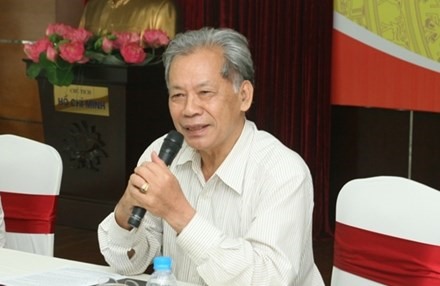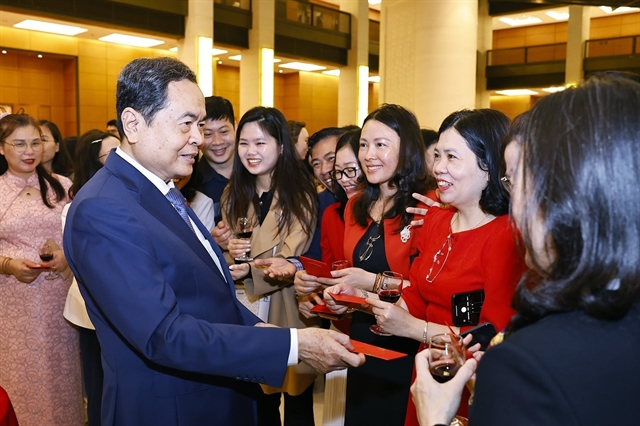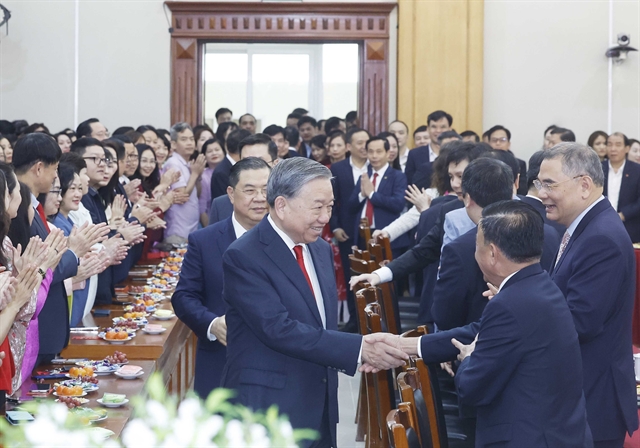 Opinion
Opinion

Thang Văn Phúc, former Minister of Home Affairs, talks to the Hải Quan Online (Customs Online) about the Government’s plan to down size the country’s public employees
 |
| Thang Văn Phúc. — Photo baohaiquan |
Thang Văn Phúc, former Minister of Home Affairs, tells Hải Quan (Customs) Online Newspaper that leaders of many Government agencies have baulked at taking difficult downsizing decisions.
Reducing the number of public employees has been a major policy of the Party and Government since early 2015. However, the record over the last two years has not impressed. What’s the main stumbling block, in your opinion?
As we all know, a key objective for downsizing is to raise the labour productivity of Government employees. The initial plan was to slash the public sector workforce by about 40,000 a year. But, in the last two years, just 22,000 employees have been let go. In my opinion, a key reason is that leaders in many government agencies have not taken tough stands on this issue for various reasons, including indulgence.
The Government has also called for tighter controls on hiring. Are these two sides of the same coin?
Before making decision to recruit a new staff, the boss has to decide what the vacant positions are and requirements for the employees that will fill these. In this regard, with Việt Nam having embarked on administrative reforms for many years now, I think we should follow prescribed procedures.
While everyone agrees on the need for downsizing, there has not been much clarity on how it should be done. Can you comment?
The Government’s Decree No.108/2014 on streaming the public sector came into effect on January 1, 2015. It set out specific conditions in which public employees have to be laid off. For instance, those who had training degrees or certificates that did not match the jobs they were doing; or those whose performance failed to meet meet job requirements and so on.
To ensure that the decision to lay off an employee is an objective one, the Ministry of Home Affairs had developed a set of criteria to evaluate the performance of each public employee, including quality of work, rate of progress, work ethics and other benchmarks.
Do you think that the Government should also adopt a policy to give timely increments in pay to those who excel at work?
We can all agree that the current salary of our civil servants cannot cover the costs of their daily life. Their salary does not reflect the hard work they have done. This is a key reason behind some civil servants abusing their positions to engage in under-the-table deals.
In think it is high time that the Government raises the civil servants’ salary so that it covers their daily needs and helps them to put something aside for rainy days.
What is your view of the Ministry of Home Affairs (MoHA)’s proposal to merge two or three departments into one in the course of administrative streamlining?
I think this proposal should have come decades ago. In my opinion, the more administrative offices the country has, the more over-lapping functions will happen. So work efficiency becomes poorer and poorer.
In a market economy, the role of the State is very important, but we should switch from direct to indirect management by using policies, laws, inspection and supervision. Whatever enterprises or individuals can do, the Government should give that function to them.
What can the Government do to make sure staff streamlining is workable?
Success depends on the determination and responsibility shown by heads of agencies and offices. Meanwhile, those who do their jobs excellently or badly should be awarded and sanctioned accordingly. But, for this to happen, we need leaders who are high performers and conscientious at the same time.
So you think the streamlining will really improve the public sector efficiency?
Yes, it will. But all know that to cut down the size of the public employees in our country is not easy, particularly given our cumbersome State apparatus. However, I’m confident that if we’re successful in reducing the number of employees on the Government’s payroll, we can realise the the objective of building a Government of the people and for the people. It will help Việt Nam become a strong and prosperous nation. — VNS

.jpg)


